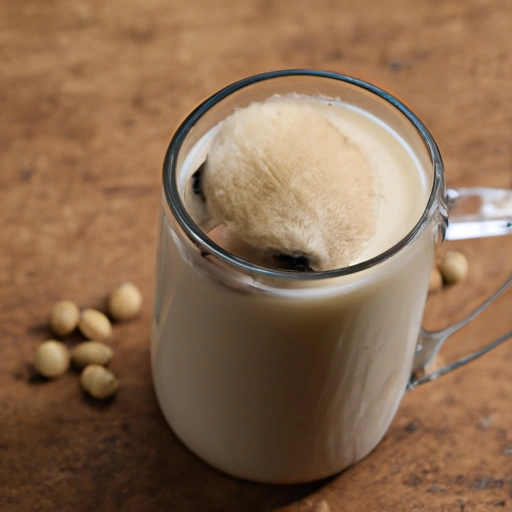Soy Milk
Description

Soy milk is a plant-based non-dairy beverage made from soybeans. It is a popular alternative to cow's milk that can be found in most supermarkets around the world. Often enriched with vitamins and minerals, it is an excellent option for those who are lactose intolerant, allergic to cow's milk, or following a vegan diet. Soy milk typically comes in sweetened, unsweetened, flavored, and fortified varieties, and can be used in a variety of culinary applications.
Common uses
Soy milk is frequently consumed on its own as a beverage but is also commonly used in coffee and tea, smoothies, and cereal. It also serves as a dairy substitute in baking and cooking, where it can replace cow's milk at a 1:1 ratio.
Nutritional value
Calories
A typical serving of unsweetened soy milk (1 cup or approximately 240ml) contains about 80-100 calories (334-418 kJ).
Protein
Soy milk is a good source of protein, providing about 7 grams (g) per serving (1 cup or approximately 240ml).
Fat
The fat content in a serving of unsweetened soy milk is around 4 grams (g), with a balance of saturated, monounsaturated, and polyunsaturated fats.
Carbohydrates
A serving size of unsweetened soy milk contains about 4 grams (g) of carbohydrates.
Vitamins
Many brands of soy milk are fortified with vitamins such as Vitamin D and Vitamin B12.
Minerals
Soy milk also contains essential minerals like calcium (often fortified to higher levels), magnesium, and potassium.
Health benefits
Soy milk is known for its potential health benefits, including a lower risk of heart disease, improved cholesterol levels, and aiding in weight management. The phytoestrogens found in soy can also have positive effects on bone health and may alleviate symptoms of menopause.
Potential risks
While soy milk is generally considered safe for most people, those with soy allergies should avoid it. Some concerns have been raised about the effect of soy's phytoestrogens on hormone levels, but research in this area is ongoing.
Common recipes
Soy milk can be used in a variety of recipes such as soups, sauces, desserts, pancakes, and baked goods.
Cooking methods
It can be heated, frothed, or used as a base for smoothies and shakes. Soy milk is also a common ingredient in tofu and vegan cheese production.
Pairing with other ingredients
Soy milk pairs well with flavors like vanilla, chocolate, berries, and nuts. It can also complement savory dishes that require a creamy texture.
Summary
Soy milk is a nutritious and versatile ingredient suitable for a variety of dietary needs and culinary applications. From its origins in ancient China to its widespread use in contemporary kitchens around the globe, soy milk continues to be embraced as a delicious and healthful alternative to dairy milk.